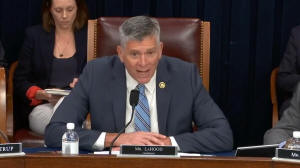|
The U.S. House has passed the Building on Reemployment
Improvements to Deliver Good Employment, or BRIDGE for Workers
Act. The measure would allow states to use the money for the
Reemployment Services and Eligibility Assessments (REA) program,
which is usually reserved for workers who are expected to
exhaust their unemployment benefits, to instead use some of the
funds for early intervention programs.
U.S. Rep. Darin LaHood, R.-Ill., said his bill will give states
more flexibility in administering existing unemployment benefits
so that Americans can find a good-paying job.
“The technical correction to clarify that reemployment services
provided through these federal grants can be provided to all
unemployment insurance claimants, not just those most likely to
exhaust their benefits,” said LaHood.
The Tax Cuts and Jobs Act of 2017 made the REA program permanent
and expanded funding for all states.
The U.S. unemployment rate stands at 4.2%, while Illinois’
unemployment rate is 5.3%, one of the highest in the country.
The average duration of unemployment is just over 19 weeks, and
LaHood said the legislation looks to shorten that time.
“This legislation provides the permanent flexibility states need
to make reemployment services a successful tool for those who
have lost their jobs through no fault of their own,” said
LaHood. “This really is a bridge to help workers.”
The measure passed the U.S. House and is now being considered by
the Senate. |
|




